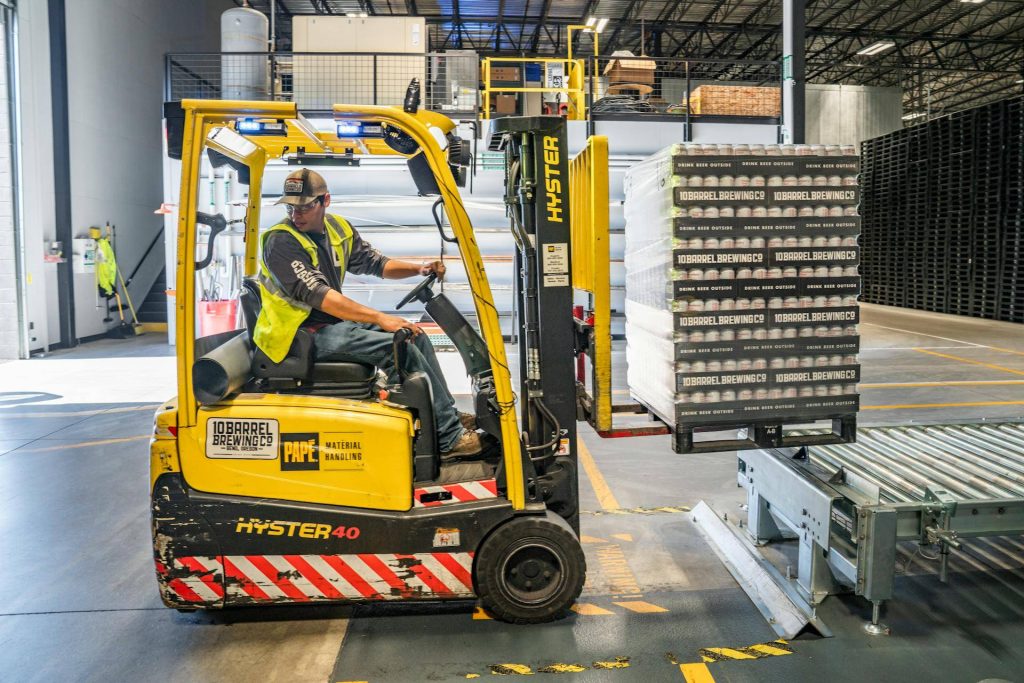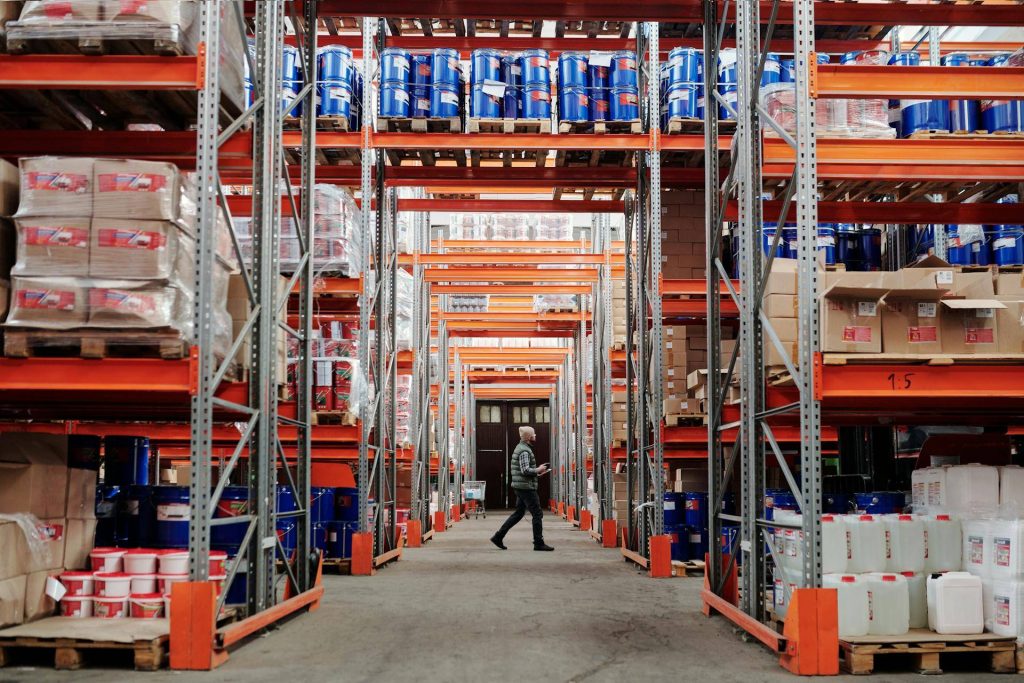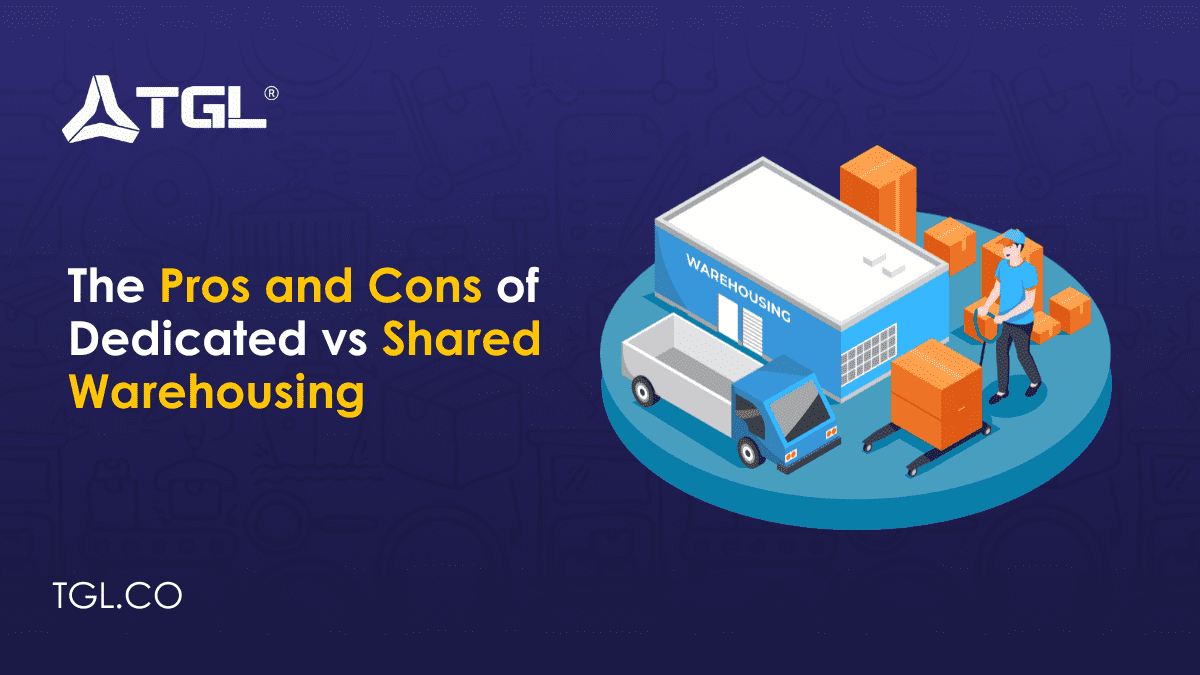In today’s competitive logistics landscape, choosing the right warehousing solution can significantly impact your business operations. Two primary options are dedicated warehousing and shared warehousing, each offering unique benefits and challenges. This blog will guide you through the pros and cons of both models to help you select the warehousing solution that best fits your operational and budgetary needs.

What is Dedicated Warehousing?
Dedicated warehousing, also known as contract warehousing, involves renting or leasing a warehouse solely for one business. This warehouse is entirely customized to meet the company’s unique storage and operational requirements.
Pros of Dedicated Warehousing
- Customization: Dedicated warehousing provides complete control over layout, storage systems, and operational processes, allowing businesses to tailor the warehouse to their specific needs.
- Brand Consistency: By having full access to a dedicated space, businesses can implement their branding and standards, ensuring consistency across all touchpoints.
- Predictable Costs: Dedicated warehousing offers fixed costs, making budget planning simpler for companies with stable demand and high storage requirements.
- Operational Efficiency: Because the warehouse serves only one company, inventory management and product handling can be optimized specifically for that business, often resulting in faster fulfillment and higher accuracy.
Cons of Dedicated Warehousing
- Higher Fixed Costs: Dedicated warehousing typically involves high initial investment, lease payments, and operational costs, making it less suitable for smaller businesses or those with fluctuating storage needs.
- Underutilization Risks: If demand fluctuates or inventory volumes decrease, a dedicated warehouse may be underutilized, leading to higher costs per unit stored.
- Less Flexibility: For businesses experiencing seasonal or variable demand, a dedicated warehouse may not offer the flexibility needed to scale storage space up or down quickly.
What is Shared Warehousing?
In shared warehousing, multiple businesses share the same warehouse facility, which is managed by a third-party logistics provider. This setup allows companies to leverage shared resources and reduce storage costs.
Pros of Shared Warehousing
- Cost Efficiency: By sharing space and resources, companies can enjoy significantly lower costs than they would with a dedicated warehouse. This is ideal for businesses with fluctuating demand or seasonal needs.
- Scalability: Shared warehousing allows companies to scale up or down based on demand, making it highly adaptable for businesses with seasonal peaks and variable demand.
- Resource Sharing: In a shared warehouse, companies benefit from shared resources like labor, equipment, and technology, often resulting in lower operational costs.
- Improved Flexibility: Businesses can access different regions and markets without committing to a long-term lease, making expansion or contraction easier to manage.
Cons of Shared Warehousing
- Limited Customization: Shared warehousing offers limited control over warehouse layout and processes, making it harder to customize storage solutions to specific business needs.
- Variable Costs: Monthly costs can fluctuate based on the amount of space and resources used, which can make budgeting a challenge for some businesses.
- Potential for Delays: With multiple companies sharing the same space, there can be delays in inventory processing and fulfillment, especially during peak seasons.
- Data Security Risks: Although providers take measures to ensure data security, some companies may feel uneasy sharing space and systems with other businesses, particularly for sensitive or high-value inventory.
Which Warehousing Option is Right for Your Business?
Choosing between dedicated and shared warehousing depends on your business’s specific needs, resources, and long-term goals. Here are some factors to consider when making your decision:
- Storage Needs and Volume: Businesses with high and consistent storage needs may benefit from the predictability and control of dedicated warehousing. However, companies with seasonal demand might find the flexibility of shared warehousing more beneficial.
- Customization Requirements: If your products require specific storage conditions, handling processes, or branding elements, dedicated warehousing provides greater flexibility for customization.
- Budget and Cost Considerations: Dedicated warehousing involves higher fixed costs, making it more suitable for established companies with steady demand. Shared warehousing is a cost-effective choice for businesses looking to minimize overhead and operational costs.
- Scalability Needs: If you anticipate rapid growth or fluctuating demand, shared warehousing provides the flexibility to adjust space and resources according to changing needs without a long-term commitment.

The Role of Think Global Logistics (TGL) in Warehousing Solutions
Think Global Logistics (TGL) understands that each business has unique warehousing needs. Whether you require the control of a dedicated warehouse or the cost-effectiveness of shared warehousing, TGL offers tailored solutions designed to enhance efficiency and optimize costs. With TGL’s expertise in logistics management, you’ll receive guidance in selecting the ideal warehousing model and access to facilities equipped with state-of-the-art technology to support your storage and distribution requirements.
Conclusion: Dedicated vs. Shared Warehousing
Both dedicated and shared warehousing have their pros and cons, and the right choice depends on your business’s specific needs. Dedicated warehousing offers greater control and customization, ideal for businesses with steady demand and specialized requirements. Shared warehousing, on the other hand, provides flexibility and cost savings, making it a good option for businesses with variable demand.
Whether you’re looking to streamline storage, optimize costs, or expand your logistics capabilities, Think Global Logistics (TGL) is here to support your warehousing needs. Contact us today to learn more about how we can help you find the best warehousing solution for your business.


